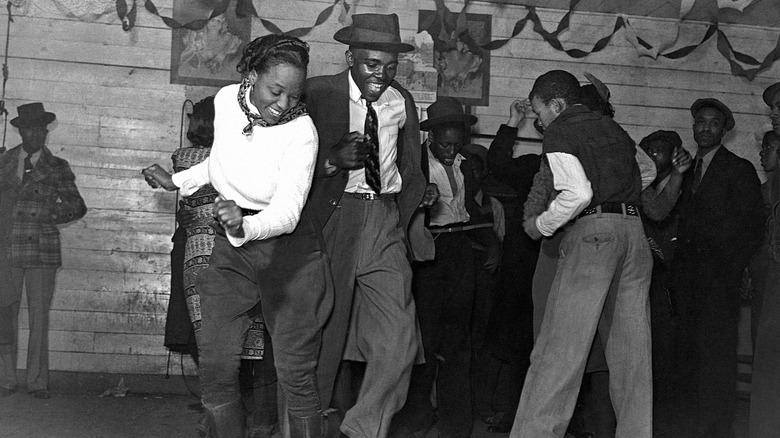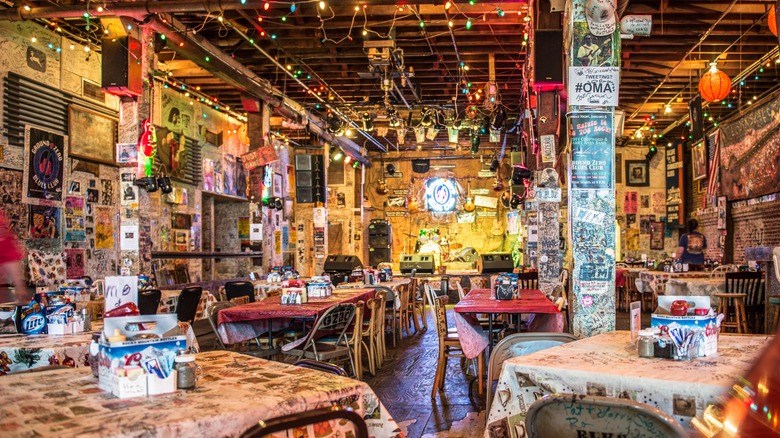What Are Juke Joints And Are They Still Around
We're all mostly familiar with the concept of a speakeasy, considering they were all the rage in the early 2010s. A less well-known historical institution turned cool hangout is the juke joint. It's less well known, perhaps, because it's a Black American cultural mainstay, and was an important place for Black people to have social spaces away from the confines of racism and even Christian morality. A few are even still around, but are quickly vanishing.
In 2016, one of Mississippi's last juke joints, Po' Monkey (Poor Monkey's Lounge) closed after the owner Willie "Po' Monkey" Seaberry passed away. Blue Front Cafe in Bentonia, Mississippi, is still alive and kicking today. Established in 1948, it's the oldest continuously operated juke joint in America. The Black Keys actually filmed their music video for "Crawling Kingsnake" there.
Juke joints largely served the Black working class of the Delta states, particularly Mississippi. After long days working the cotton fields, they would catch a bite to eat, socialize, and let loose with some live music. You'd find soul food mainstays like Southern fried chicken, greens, and biscuits. If you were lucky, maybe even some pig and BBQ.
They were mostly informal establishments; it's not like juke joints were chain restaurants, nor did they have a blueprint to follow. They were places of drinking, dancing, hearing and performing live music, and sometimes gambling. Some owners would even serve their own moonshine, and the food on the menu was whatever was on hand. Author of "Juke Joints, Jazz Clubs & Juice," Toni Tipon-Martin, told Bon Appétit that each juke joint was a reflection of its owner.
Juke joints are a key part of history, even if you don't realize it
Juke joints have their history and legacy in slavery, in which enslaved people would meet up Saturday evenings to socialize and be together in a place that was all their own, where they could drink, eat, and dance. After the Civil War, during Jim Crow, sharecroppers would meet up in remote areas and build little cabins and shacks. Away from the police and segregation, which made it dangerous to patronize bars in more populated areas, Black people could relax, have fun, and establish community.
Because juke joints were established wherever they could be, these spaces were and are often described as ramshackle, but that undercuts their significance and importance. Not only were they places of Black joy, it was also where many of the best and most distinctive traditions of African American music were played and shaped, like the Delta blues, ragtime, and even rock 'n' roll. Heck, we have the word jukebox because of juke joints!
Efforts to preserve this legacy live on, like Morgan Freeman's own Ground Zero Blues Club in Clarksdale, Mississippi. Even if, as some juke joint experts note, it has a real menu and Wi-Fi and lacks the rustic charm of mismatched furniture and clapboard walls that juke joints are known for, it's an important part of preserving this incredible legacy.

